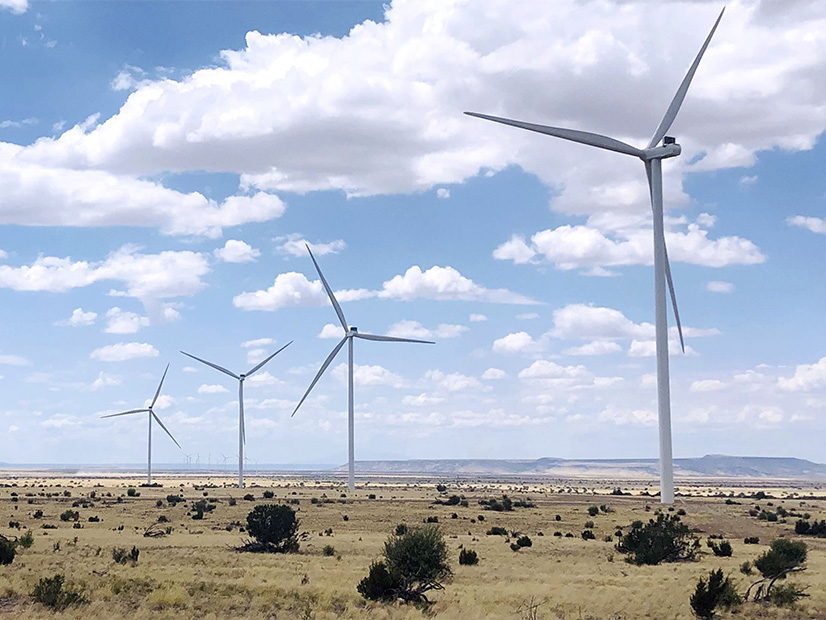
As Arizona regulators begin a process to repeal renewable energy and energy efficiency standards for electric utilities, a group of state lawmakers want the regulators to reconsider clean energy rules they previously rejected.
State Sen. Priya Sundareshan (D) introduced Senate Concurrent Memorial 1002 last month, which would urge the Arizona Corporation Commission (ACC) to adopt as soon as possible energy rules the commission previously considered.
Those rules included a requirement for utilities to reduce carbon emissions by 50% by 2032 and 100% by 2050. Other components were an energy efficiency standard and energy storage requirements.
The introduction of SCM 1002 comes as the ACC voted Feb. 6 to start a rulemaking process to repeal its renewable energy and energy efficiency standards for electric utilities.
Commission Chair Jim O’Connor said the two standards combined have cost Arizona ratepayers almost $3.4 billion since 2006.
“We began the steps needed to repeal a rule that has cost ratepayers billions of dollars in out-of-market-priced contracts,” O’Connor said in a statement regarding the renewable energy standard. “Mandates distort market signals and are not protective of ratepayers.”
Under Arizona’s renewable energy standard, adopted in 2006, 15% of electric utilities’ retail sales must be from renewable resources by 2025. The state’s electric utilities have met or exceeded the standard.
Sundareshan told NetZero Insider she was “shocked and concerned” by the commission’s action.
“Weak as the current [renewable portfolio standard] is, what we need is action toward a stronger RPS,” she said in an email.
In addition to Sundareshan, SCM 1002 lists 11 other senators and five representatives, all Democrats, as co-sponsors. It is awaiting its first committee hearing. It’s not clear how far SCM 1002 will get in Arizona’s Republican-controlled legislature.
Sundareshan said she is asking the ACC to reconsider its prior energy rules decision via a Senate Concurrent Memorial because of uncertainty about what direction the legislature can give the commission under the state constitution.
If SCM 1002 fails, Sundareshan said, she might take a closer look at potential legislation to direct the ACC to update its renewable energy standards.
Repeal Process
The ACC voted 4-1 in separate votes Feb. 6 to start a process to repeal the renewable energy and energy efficiency standards. Commissioner Anna Tovar, the lone Democrat on the panel, cast the “no” votes.
The votes started a process that could take a year or longer. ACC staff will first create draft rules that will be brought to the commission. If approved, the formal rulemaking process will begin, with periods for public comment before a final vote by the commission.
In 2021, the commission rejected a set of clean energy rules that would have required electric utilities to eliminate their carbon emissions by 2050.
When the proposal was changed to give utilities until 2070 to meet the 100% carbon-free emissions target, the commission approved the rules — only to change course and reject them at a later meeting. (See Ariz. Regulators Reverse Clean Energy Rules.)
In rejecting the rules, commissioners voiced concerns about the impact to ratepayers.
But in SCM 1002, lawmakers blame natural gas price increases for rising costs to ratepayers.
“The commission’s failure to update this state’s renewable energy standards will continue to keep ratepayers captive to these rising fuel costs and at the mercy of the gas market,” it states.
Despite the commission’s rejection of the clean energy rules, Arizona utilities are making clean energy pledges.
Arizona Public Service (APS) has committed to being 100% clean and carbon free by 2050, with a 2030 target of 65% clean energy resources and 45% renewable energy.
Tucson Electric Power (TEP) was expecting 32% of its retail sales in 2023 to come from renewable resources, according to the company’s proposed integrated resource plan filed in November.
Energy Efficiency Rules
Under Arizona’s energy efficiency standard, electric utilities were required to achieve annual energy savings of at least 22% of the previous year’s retail sales by the end of 2020.
Commissioner Kevin Thompson said utilities’ efficiency measures “have done little to avoid the need for new generation and have benefited a select few.”
“Energy efficiency programs are routinely pushed by vocal special interest groups where the economic benefits favor a small group of customers, and the large majority of ratepayers foot the bill,” Thompson said in a statement.
Caryn Potter, Arizona representative for the Southwest Energy Efficiency Project (SWEEP), told the commission the energy efficiency standard requires programs to be cost effective, creating at least $1 in benefits for every dollar spent.
“No other utility investment today is held to that same bar,” Potter said.
Potter also noted the economic benefits of the standard to Arizona, which she said has more than 42,000 energy efficiency workers.
Ana Gorla, representing the Sierra Club Grand Canyon Chapter, said the commission should strengthen the energy efficiency and renewable energy standards rather than repeal them.
“Energy efficiency is the cleanest, cheapest energy resource,” Gorla said. “Investments in energy efficiency have helped people reduce their energy burden and help reduce the need for some generation.
“Keeping [the standard] in place sends a message to utilities to not backslide on energy efficiency.”



